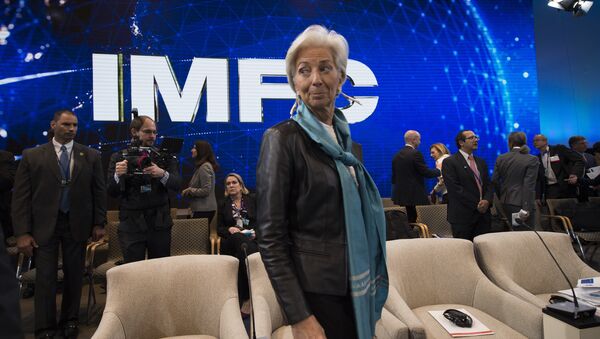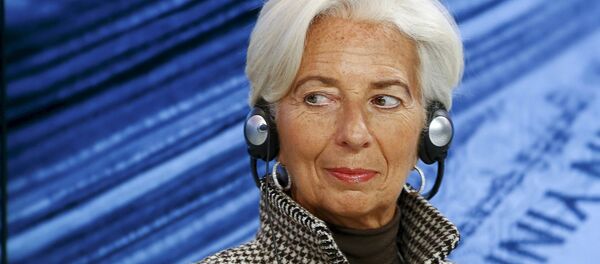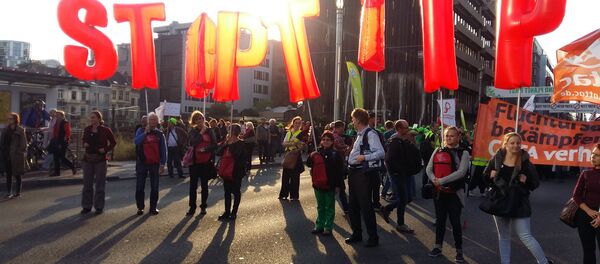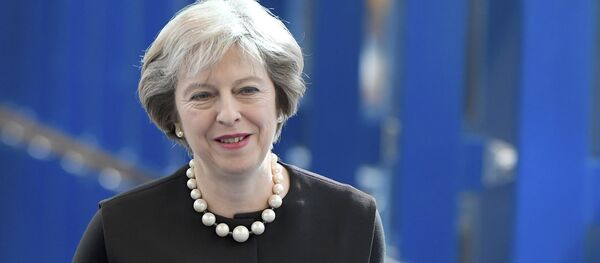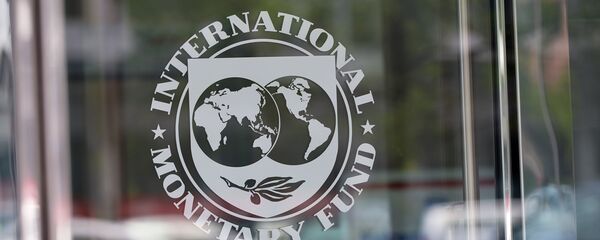Radio Sputnik's Loud & Clear producer Walter Smolarek noted that, on one hand, the economy of the West has not completely recovered from the recession of 2008-2009, despite significant measures taken by financial regulators. These measures have resulted in only temporary fixes that have failed to return the global economy to where it was prior to the recession.
Those countries, such as BRICS members, that could count as real engines of post-crisis world economic growth have had a "very rough few years," Smolarek says, due, in part, to low commodity prices. A dramatic oil-price drop caused a cascade of other negative economic effects in those countries.
Smolarek notes, however, that when Lagarde speaks about a "weak and fragile" economy, she is speaking about the top of the economic food chain, primarily the largest financial institutions and multinational corporations. But these entities, when faced with challenges, simply divert the negative economic impact down the chain, where the working class suffers the effects. For the working class, however, the IMF offers no solutions and, indeed, hardly addresses the issue as relevant to their message.
Every time an economic crisis occurs, the global economy eventually stabilizes, but at the price of the working class, as workforces and salaries are routinely cut, contracts are revised downward, and other drastic measures, including a loss of social support and healthcare, are taken to keep the big players in the Western economy afloat, Smolarek notes.
Asked whether there is a solution that realistically benefits workers, Smolarek said that politics is ordinarily the driver for who gets the best bites, and political donations influence legislation. Workers must fight for their share of the GDP, and the workers' union is a very effective tool in that struggle.
Without a change in how wealth is defined, aggregated and distributed, he asserts, the one percent at the top are likely to increase their control of resources, and that is happening right now. According to Smolarek, 62 of the world's richest people currently own as much wealth as the poorest half, or some three billion people, in the world.
"There's a vast, vast abundance that is hoarded by a very small clique of people."
The ultra-wealthy, however, are contributing to the ongoing economic decline, sparking a growing wave of resistance toward globalization. The most radical example of this resistance is the UK Brexit, he pointed out. There are other countries sharing similar sentiments, to some degree, finding realization in the form of tariffs, trade taxes and other forms of protectionism, Smolarek notes. Protectionism, a driver for sovereign economic health, was sharply criticized by Lagarde during her opening speech in Washington, indicating on which side of the economic aisle lie the sympathies of the IMF.
Smolarek believes that people from the right are "turning the reality on its head," as worldwide deregulated-trade agreements, like TTIP or TPP, are about, in part, preventing immigrants from taking over the West. According to Smolarek, these agreements will, if ratified, instead allow Western multinationals and financial institutions to enter other markets without regulation, resulting in exploited labor markets and the stripping of national resources to an extreme degree.
According to Smolarek, the working class of the United States must refuse the idea of being separate from the working class of the rest of the world, and, as is natural for an American, claim their rights as citizens.
